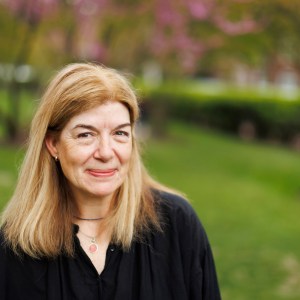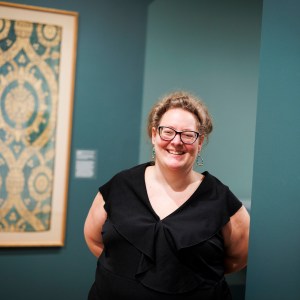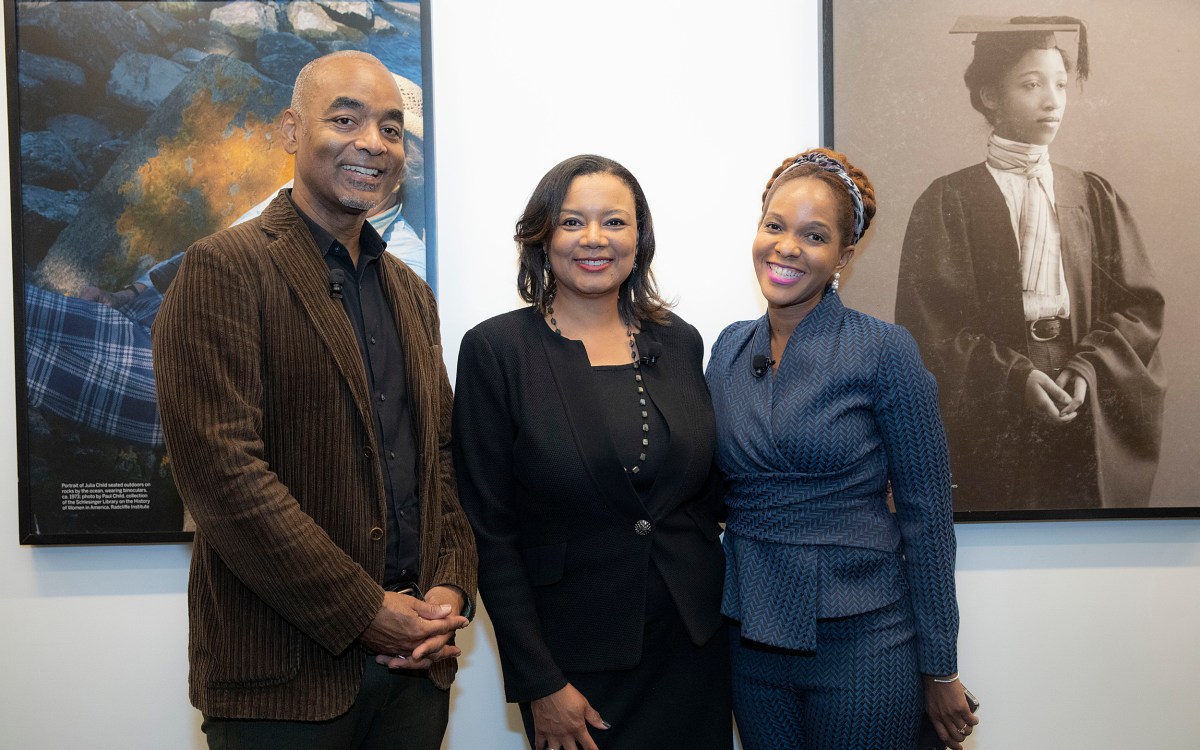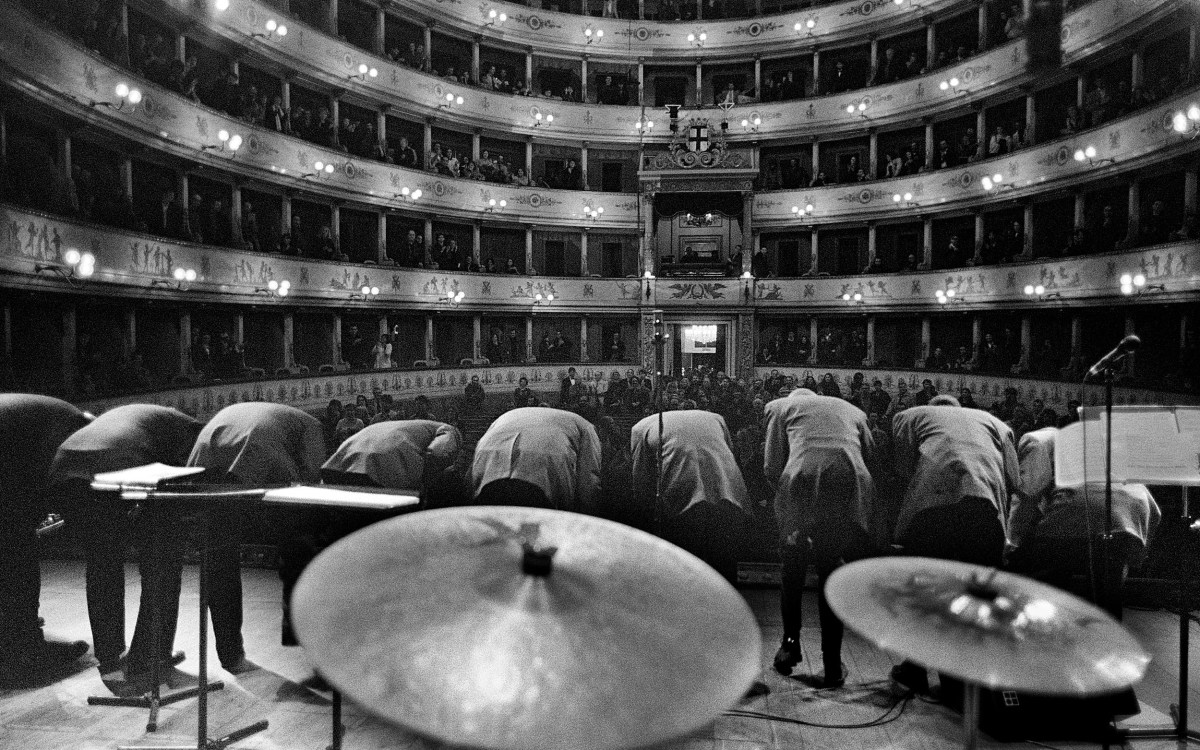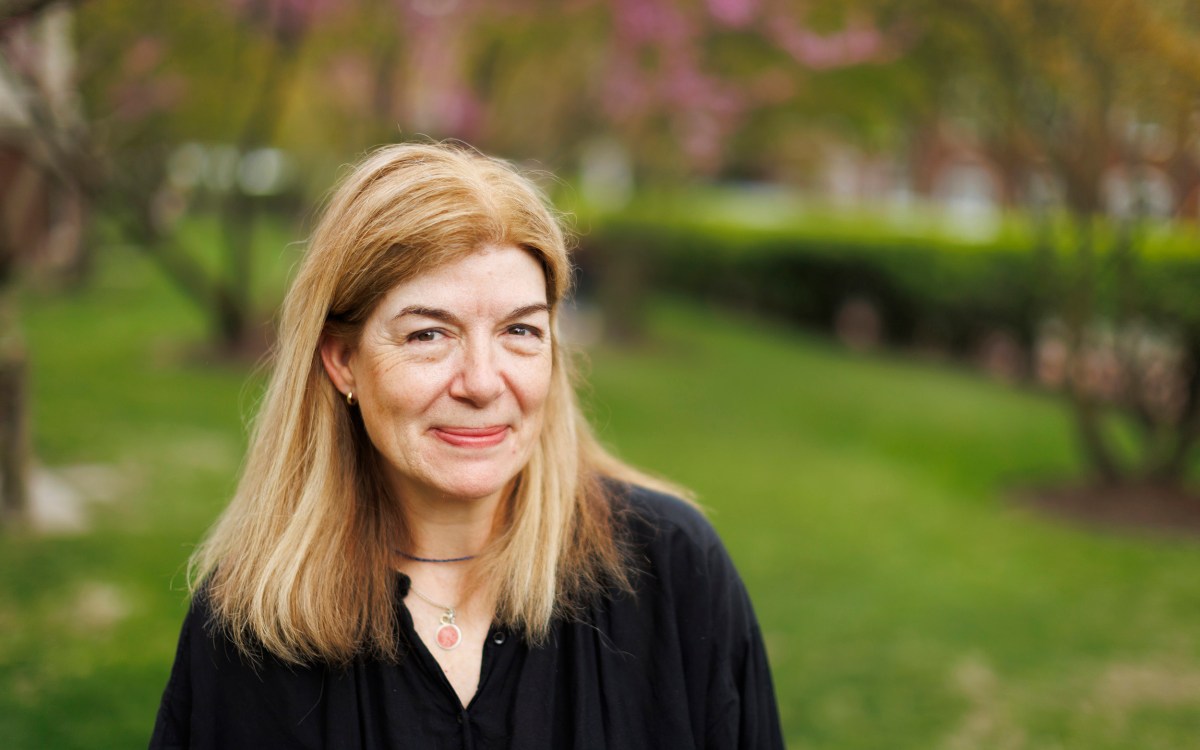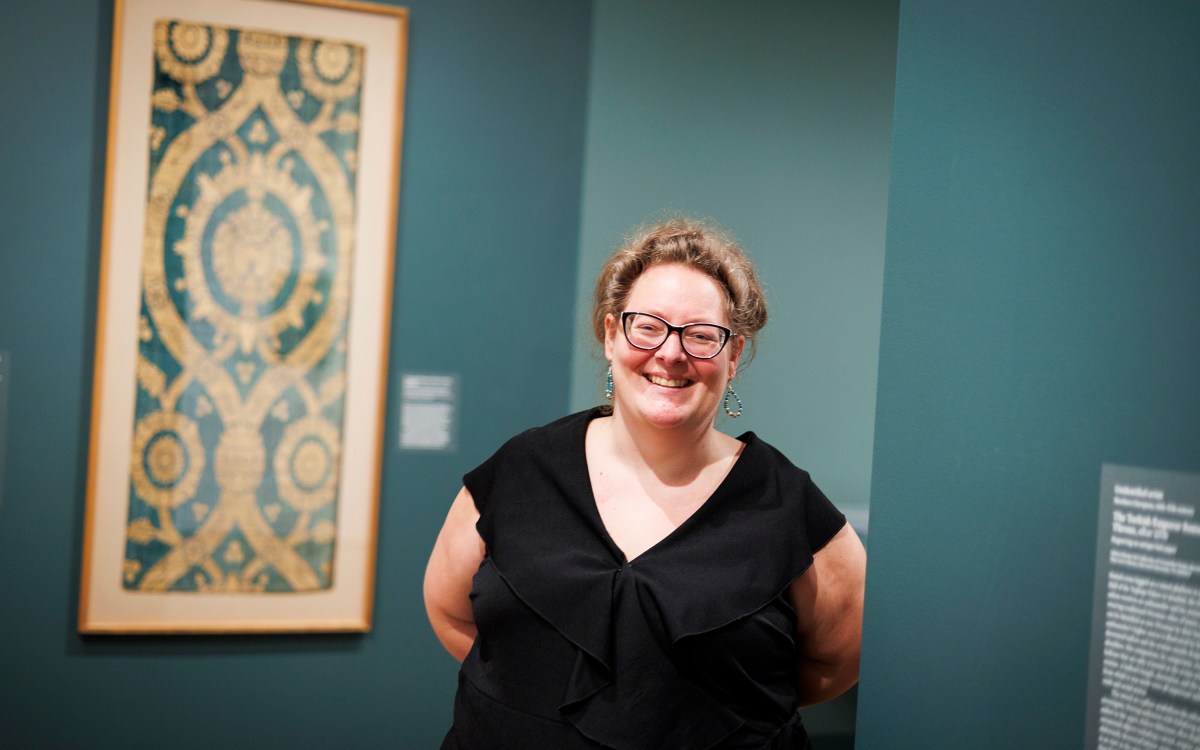Persistence, courage take the dais
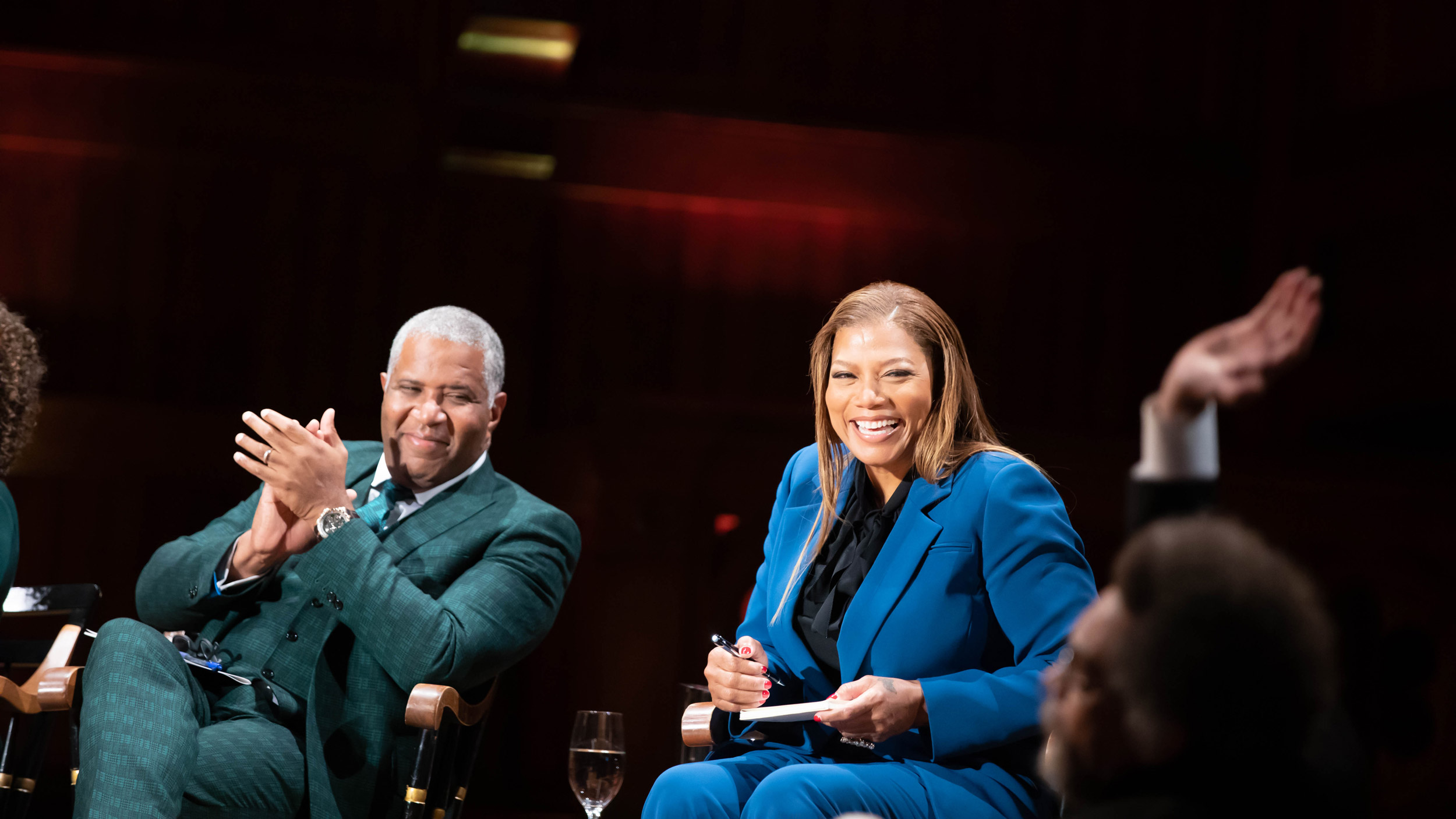
Queen Latifah (right) and Robert F. Smith applaud their fellow honorees.
Photos by Rose Lincoln/Harvard Staff Photographer
Du Bois Medal recipients celebrate black excellence and opportunity
Perseverance was a theme at this year’s W.E.B. Du Bois Medal awards. So too was courage.
“Understand that there will be times when you will have to stand alone. There will be no one else that will believe in your dream,” Queen Latifah, hip-hop artist, actor, and medal recipient, told a packed audience Tuesday evening at Sanders Theatre. “There are plenty of people who told us we will never be where we are today … but we don’t believe those people. You have to be strong and be courageous and just know that if you believe in it, it’s going to happen. Don’t give up. Do not quit. Fight for it.”
The Du Bois medal is the highest honor Harvard gives to scholars, artists, writers, journalists, philanthropists, and public servants for their contributions to African and African American history and culture. It is awarded by the Hutchins Center for African & African American Research.
Besides Latifah, this year’s honorees included Elizabeth Alexander, a renowned poet, president of the Andrew W. Mellon Foundation, and former fellow at the Radcliffe Institute for Advanced Study; Lonnie Bunch III, the head of the Smithsonian Institution; Rita Dove, a Pulitzer Prize-winning poet and former U.S. poet laureate; Sheila C. Johnson, philanthropist and co-founder of Black Entertainment Television; Kerry James Marshall, an award-winning artist and former MacArthur fellow; and entrepreneur Robert F. Smith, who made national headlines when he announced he would pay the college loans of more than 400 Morehouse College students who graduated in May.
The winners were introduced by University President Larry Bacow, Hutchins Center chairman Glenn H. Hutchins ’77, J.D. ’83, M.B.A. ’83, and others.
“I am humbled because I know you’re really not bestowing an award on me. What you’re doing is recognizing that all of us are standing on the shoulders of so many.”
Lonnie Bunch III
During the ceremonies, Henry Louis Gates Jr., the Alphonse Fletcher University Professor and director of the Hutchins Center for African and African American Research, spoke of the value and preciousness of getting a chance.
“We are here this afternoon, ladies and gentlemen, celebrating not only achievement but also opportunity,” Gates said. “Our medalists have made the most of their opportunities. Our charge to the young people in the audience this afternoon is that you make the most of yours.”
Latifah offered a similar challenge to the students in the audience.
“You can be whatever you want to be if you put your mind to it and you work hard for it,” said Latifah, who burst onto the scene as a rapper in 1989 and, along with becoming one of the most influential women in hip-hop, went on to become a genre-breaking trailblazer as a Grammy, Emmy, and Golden Globe winner. In 2006, she became the first hip-hop artist to get a star on the Hollywood Walk of Fame.
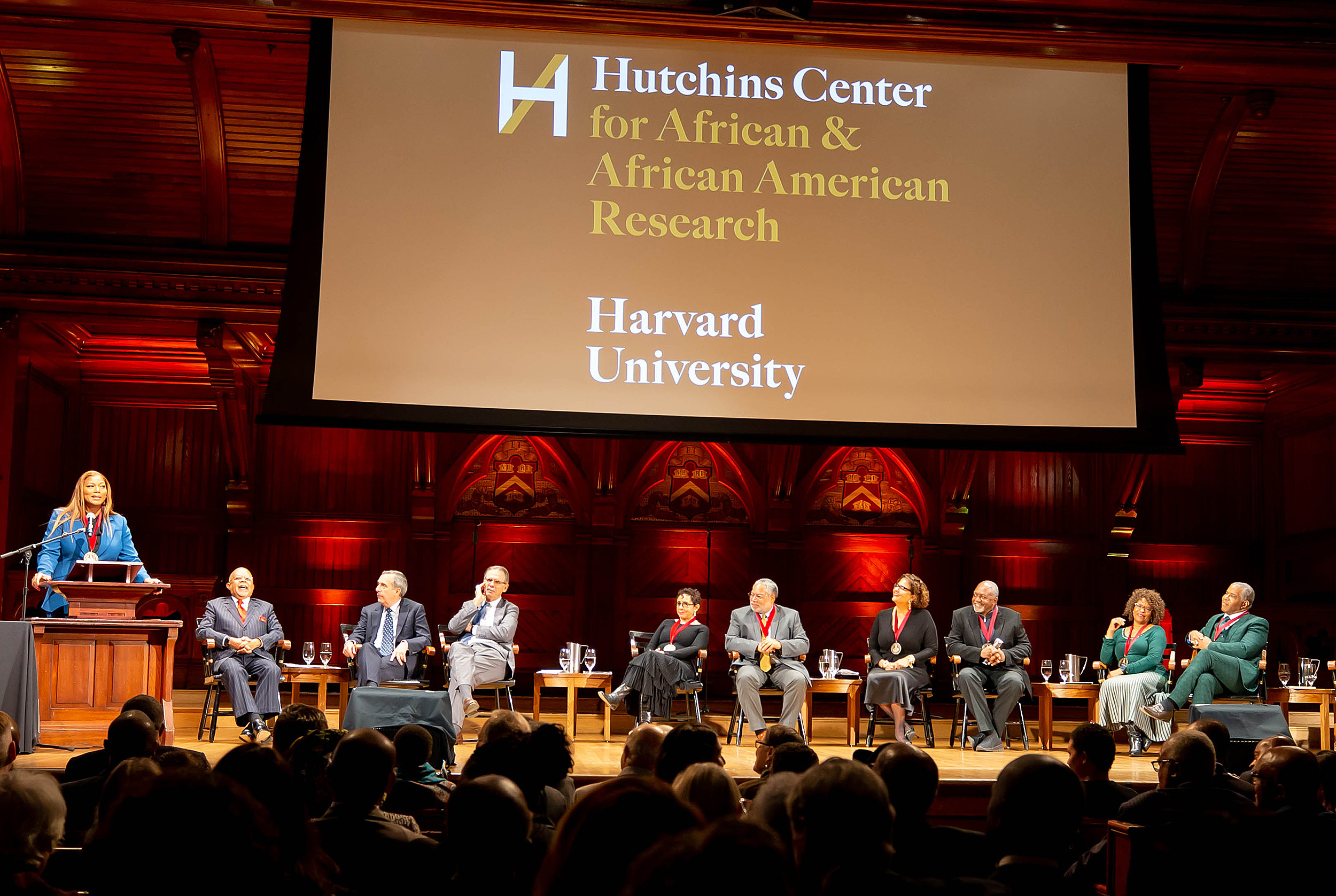
In a moving speech, Smith — the founder, chairman, and CEO of Vista Equity Partners, a firm that manages equity capital worth upwards of $50 billion — recalled how his upbringing and community inspired him to succeed for those who didn’t have the opportunities he did, and to open doors to success for others. Of his $34 million gift to the 2019 graduates of Morehouse, he said, “To me that’s my job. It is to liberate the human spirit.”
Honorees also dedicated awards to parents and mentors who helped get them where they are, including the award’s namesake, William Edward Burghardt Du Bois, the groundbreaking sociologist, author, and Civil Rights activist who in 1895 became the first black student to earn a doctorate from Harvard.
“I am humbled because I know you’re really not bestowing an award on me,” said Bunch, who was founding director of the Smithsonian’s National Museum of African American History and Culture and previously served on the Commission for the Preservation of the White House. “What you’re doing is recognizing that all of us are standing on the shoulders of so many.”
Past winners include such luminaries as poet Toni Morrison, boxer Muhammad Ali, children’s rights activist Marian Wright Edelman, Nigerian writer Wole Soyinka, comedian Dave Chappelle, former U.S. Attorney General Eric Holder, writer Maya Angelou, politician and civil rights leader John Lewis, opera star Jessye Norman, rapper Nasir “Nas” Jones, Supreme Court Justice Sonia Sotomayor, and entertainer and media executive Oprah Winfrey.
Cornel West gave the spirited closing remarks.
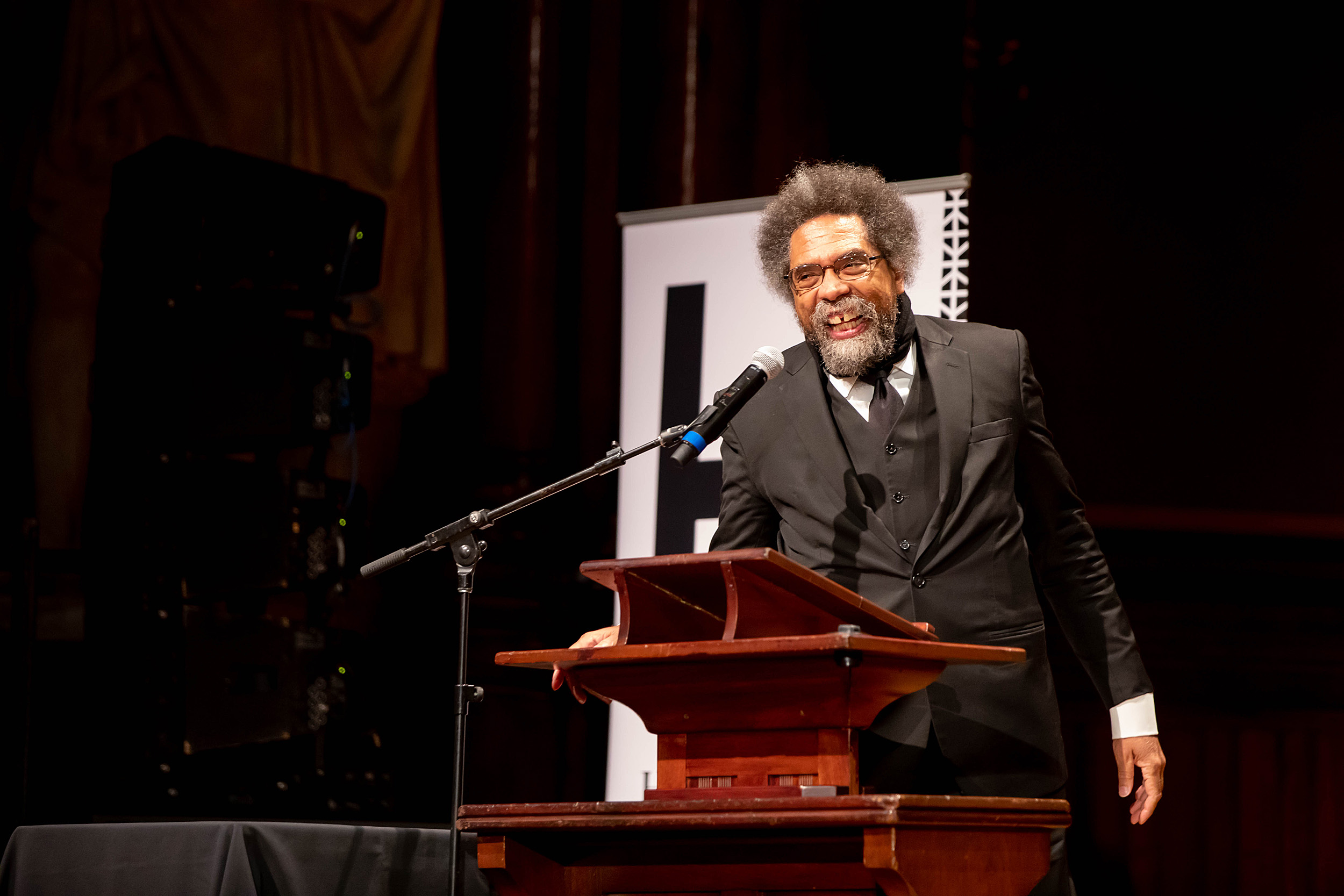
Cornel West, professor of the practice of public philosophy at Harvard Divinity School, social critic, and former recipient of a Du Bois medal, said the award was less a celebration of any individual and more one of African and African American culture itself.
“When you look at these brothers and sisters, their lives are enacting so much of the best of the afterlife of their mothers and fathers, and grandfathers and grandmothers, and aunts and uncles, and teachers and coaches, and jazz and blues and hip-hop and rhythm and blues. That’s what you’re looking at when you’re looking at these folk!” West trumpeted. “You’re looking at a great tradition of a great people.”
More like this
[gz_banner_50states /]

